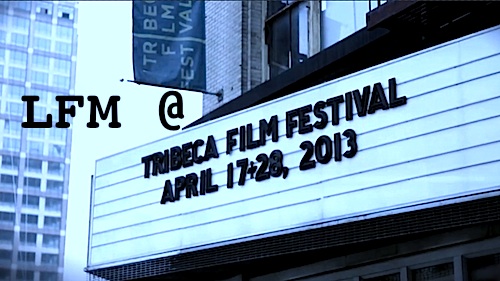By Joe Bendel. In the 1930’s, Walter Duranty, The New York Times man in Moscow, systemically misreported or ignored Stalin’s crimes, including the notorious show trials and the Ukrainian famine. He is considered an unfortunate but isolated case. Yet, throughout the war, the Times consistently buried stories about the Holocaust. Emily Harrald examines the “Paper of Record’s” questionable coverage (again as a discrete phenomenon) in the documentary short Reporting on the Times, which screens as part of the History Lessons short film program at the 2013 Tribeca Film Festival.
Harrald’s opening graphics speak volumes. From 1939 to 1945, the Times ran 23,000 front page stories—11,500 of which were about World War II. 26 were about the Holocaust. What is most disturbing is the nature of the coverage that did run, typically relegated to the middle of the paper. Midway through European round-up pieces, the Times would matter-of-factly report on the “liquidation” of the ghettoes, with no illusions regarding what that euphemism meant.
Rather bizarrely, Harrald spends a good portion of Reporting excusing the Times’ dubious Holocaust reportage. Viewers will never forget publisher Arthur Hays Sulzberger was himself Jewish, but presented a fully Americanized and secularized image to readers and the press, partly out of concern over the rise of anti-Semitism. Perhaps this explains why he would be personally reluctant to run front page stories on the plight of European Jewry. However, he employed a full editorial staff to make sure the paper did not bury its lede.
 Throughout Reporting, moral clarity is provided by a Holocaust survivor whose mother was convinced the world would come to their aid once they knew the magnitude of the National Socialists’ crimes. For whatever reason, the Times obviously did not do its part. Yet, when considered in light of Duranty’s Moscow dispatches, the under-reporting of the Holocaust appears more systemic than Reporting would like to consider. Harrald’s film earns credit for beginning the conversation, but its interpretations of media history are far from definitive. It screens again today (4/23), Friday (4/26), and Sunday (4/28) as part of the History Lessons short film block at this year’s Tribeca Film Festival.
Throughout Reporting, moral clarity is provided by a Holocaust survivor whose mother was convinced the world would come to their aid once they knew the magnitude of the National Socialists’ crimes. For whatever reason, the Times obviously did not do its part. Yet, when considered in light of Duranty’s Moscow dispatches, the under-reporting of the Holocaust appears more systemic than Reporting would like to consider. Harrald’s film earns credit for beginning the conversation, but its interpretations of media history are far from definitive. It screens again today (4/23), Friday (4/26), and Sunday (4/28) as part of the History Lessons short film block at this year’s Tribeca Film Festival.
LFM GRADE: C
Posted on April 23rd, 2013 at 1:42pm.
